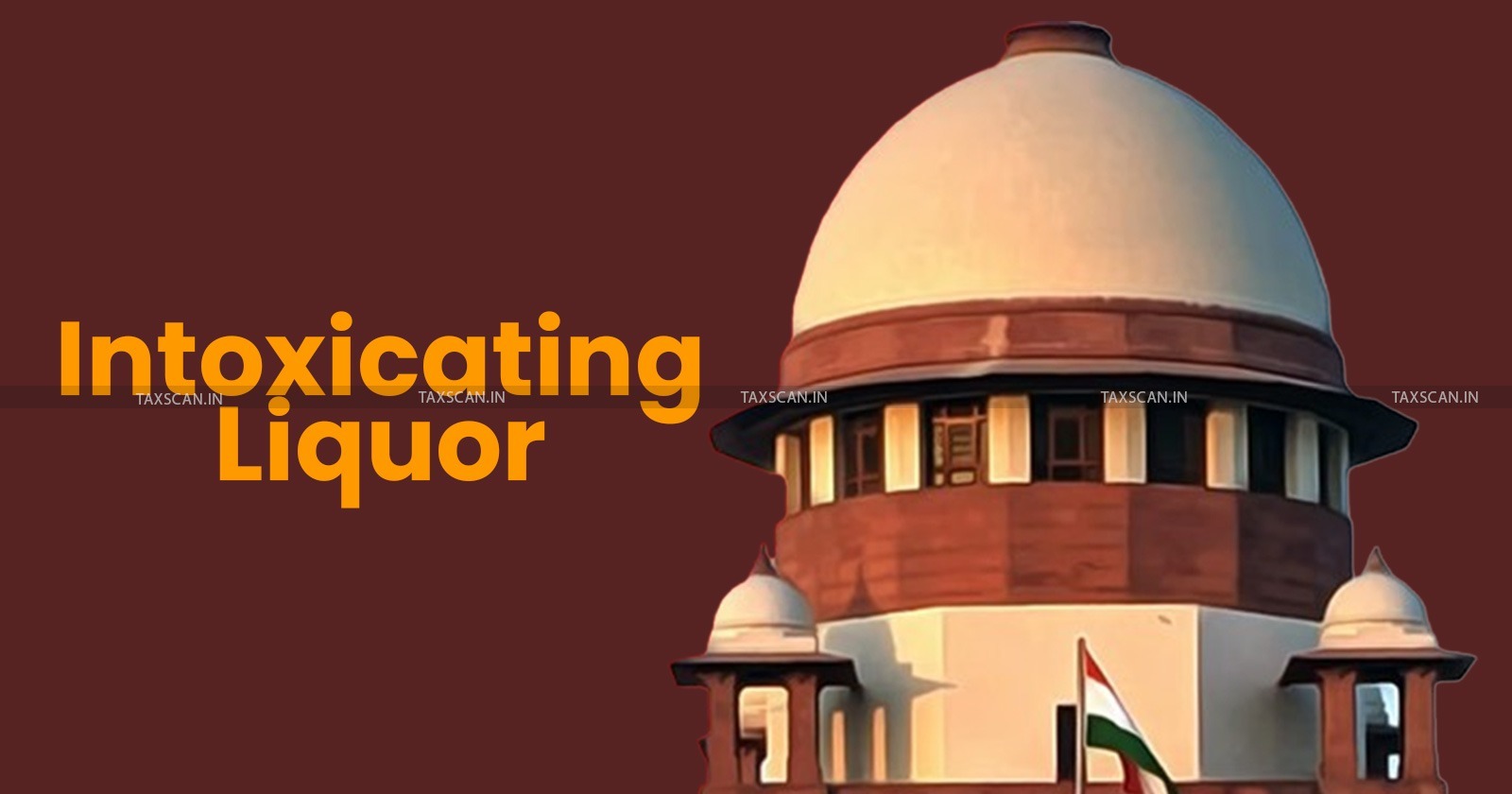Parliament does not have Legislative Competence to Enact a Law taking control of Intoxicating Liquor Industry: Supreme Court [Read Judgement]
In a dissenting judgement, Justice Nagarathna expressed a differing opinion

Supreme Court – Supreme Court rule on Intoxicating Liquor Industry – Supreme Court and Liquor Industry – Supreme court rule on Intoxicating liquor – TAXSCAN
Supreme Court – Supreme Court rule on Intoxicating Liquor Industry – Supreme Court and Liquor Industry – Supreme court rule on Intoxicating liquor – TAXSCAN
The Supreme Court, on Wednesday, ruled that 'industrial alcohol' falls within the scope of 'intoxicating liquor' as defined under Entry 8 of List II (State List) of the Constitution, thus affirming the States' authority to regulate it in the case State of Uttar Pradesh and Ors. v. Lalta Prasad Vaish.
A nine-judge Constitution Bench, led by Chief Justice of India (CJI) DY Chandrachud and including Justices Hrishikesh Roy, Abhay S Oka, BV Nagarathna, JB Pardiwala, Manoj Misra, Ujjal Bhuyan, Satish Chandra Sharma, and Augustine George Masih, delivered this decision.
The Future of Tax and Finance: Upskill with Us, Click here
The majority opinion expanded the definition of intoxicating liquor beyond just alcoholic beverages meant for consumption, including all types of alcohol that could potentially harm public health.
The Court explained that while alcoholic liquor is typically consumed, the term 'intoxicating' extends to its manufacture and effects, emphasising the public interest in such regulation.
The central question was whether States could regulate industrial alcohol under Entry 8, which empowers States to deal with intoxicating liquors, in contrast to Entry 52 of the Union List, which allows the Central government to regulate industries declared by Parliament as being in the public interest.
The Future of Tax and Finance: Upskill with Us, Click here
While acknowledging potential overlaps between the two entries, the Court stressed the need for a broad interpretation of legislative lists to avoid redundancy, ultimately holding that intoxicating liquor under Entry 8 includes all alcohols, not just those for consumption.
The ruling overturned the 1990 judgement in Synthetics & Chemicals Ltd. v. State of Uttar Pradesh, which had restricted 'intoxicating liquor' to potable alcohol, thereby allowing States to tax industrial alcohol. The Court stated that the term "intoxicating liquor" encompasses any alcohol that could pose a threat to public health.
The decision also revisited the 2007 State of UP v. Lalta Prasad Vaish judgment, which had referred the issue to a larger bench, leading to this landmark ruling. During hearings, the States argued that regulating industrial alcohol is vital in the post-GST regime, with implications for public health monitoring.
The Future of Tax and Finance: Upskill with Us, Click here
Solicitor General Tushar Mehta and advocate Kanu Agrawal represented the Union government.
To Read the full text of the Judgement CLICK HERE
Support our journalism by subscribing to Taxscan premium. Follow us on Telegram for quick updates


